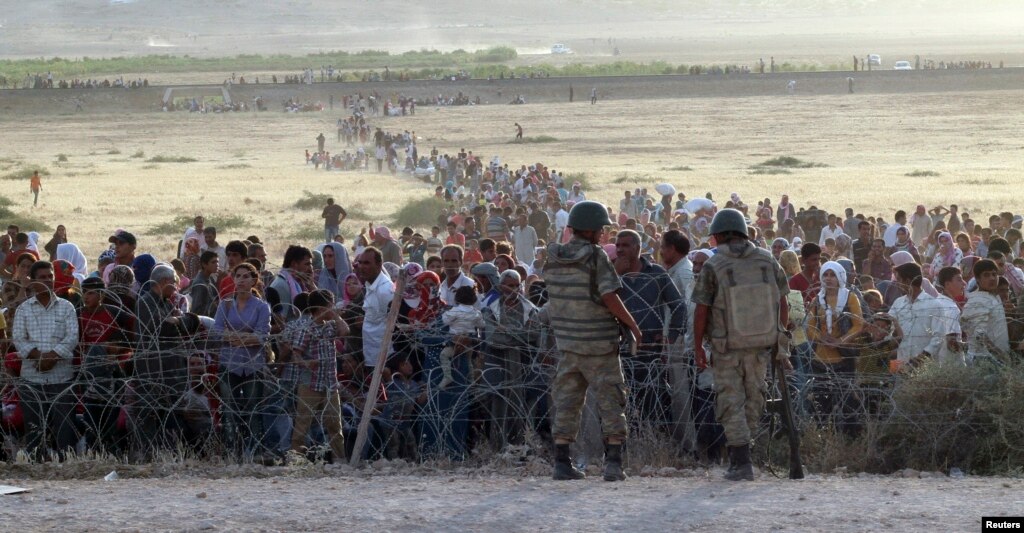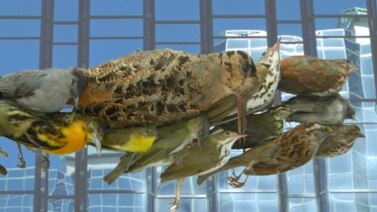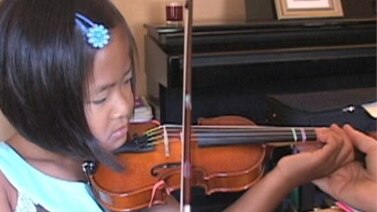
A recent survey of Turkish public opinion found a major rise in xenophobia -- the dislike or fear of foreigners. The American-based Pew Research Center reported the findings. They come at a time when Turkey faces war on its border and unsettled relations with some neighbors and allies. It is also a time when the country is asking to join the European Union.
Semih Idiz writes about diplomacy for the Turkish newspaper Taraf and Al Monitor website. He says feelings against foreigners are not limited to Western countries, as traditionally they were.
“They are almost universal. I mean, 70 seventy percent of those surveyed said they were anti-American. But an equal 70 percent said they were anti-Russian. And then we find that most Turks are against Saudi Arabia and China, they are against NATO, they are against the EU. So you know there is this kind of national de-formation that, you know, everybody hates us.”
The apparent change of attitude is happening at a time when Turkey has tense or no diplomatic relations with three of its neighbors. They are Syria, Iraq and Iran.
Cengiz Aktar is a political scientist with Suleyman Shah University in Istanbul. He says differences with Western allies over the conflict in Syria and the struggle against the Islamic State have added to Turkish feelings of isolation.
“The government is pumping this idea of splendid isolation, which they call “worthy loneliness” – a bit like Russia, by the way. Turkey is isolating itself. It is still trying to making its case, but of course no avail.”
Observers say suspicion and even hostility to the world are nothing new for Turkey. For much of the 20th century, Turkish school children were taught that enemies surrounded their country. Children also learned that Western countries working with Arabs caused the collapse of the Ottoman Empire.
Political scientist Cengiz Aktar says those conditions and the European occupation of Turkey after World War One still shape the way Turks think.
“It goes back to the early 20th century, when Turkey was reborn from the ashes of the Ottoman Empire and the country was occupied. Mustafa Kemal and his friends ended the state of affairs and created a new country. And so there is a huge suspicion of anything which comes from the West, a sense of being surrounded by enemies all over. Of course, it’s very worrisome.”
Mr. Idiz says that means Turkish politicians will seek to use public fears and increased nationalism to win support in general elections. The voting is to take place by June of next year. He said there is a feeling that Turkish leaders are guarding the country against plans by hostile outsiders.
“It is fact that politicians in Turkey also use this to their advantage. There is a perception that they are guarding Turkey against nefarious outside plans. Erdogan himself was reviving imagery pertaining to the First World War, so as you see we have this being utilized at the highest level of the policy in Turkey.”
Last month, Turkish President Recep Tayyip Erdogan said Western interference in the area was like Lawrence of Arabia, the famous World War One British army officer. This man led an Arab rebellion against the Ottoman Empire.
I’m Bob Doughty.
This report was based on a story from reporter Dorian Jones in Istanbul. Jeri Watson wrote the story for VOA Learning English. George Grow was the editor.
Words in This Story
universal - adj. done or experienced by everyone
attitude - n. the way you feel about someone or something
isolation - n. the state of being in a place that is separate from others; the condition of being isolated
nationalism - n. a feeling that people have of being loyal to and proud of their country, often with the belief that it is better and more important than other countries.
nefarious - adj. evil or immoral
Now, it’s your turn to use these Words in This Story. In the comments section, write a sentence using one of these words and we will provide feedback on your use of vocabulary and grammar.





